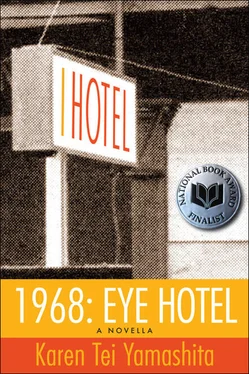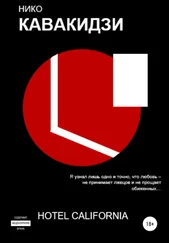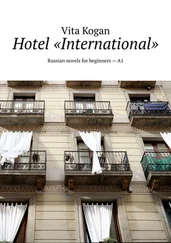“You invited me to spend the summer writing. You admonished me to never lose the desire to write. That desire, you said, is life itself.”
The old teacher withdraws his glasses and polishes the separate lenses with a fold in his shirt. He tries to kill himself in 1949. There are details about their individual lives that cannot be reconciled in a few hours of a scheduled appointment after twenty-five years.
Chen walks his old teacher to the bus stop. “I should make a visit to your home. It’s only proper as your student.” He does not want to end their meeting so abruptly. He wants to know what expectations his teacher has for him, the pupil; what future does he anticipate? What potential does his teacher see in him that he could not in those days see? He does not expect to return to admonish his teacher about the very things he has not accomplished. He feels ashamed.
On the other hand, his teacher has to make a reckoning of his life, to write a full accounting of himself as self-criticism. During this period of self-reflection, perhaps a year, he takes the job of cleaning the museum latrines. He laughs at Chen and even seems to hop on to the bus. “This relationship of the teacher-student is no longer relevant. Don’t worry yourself about such things.”
“How is it that you are so healthy?” Chen calls to him through the open window of the bus.
“Silkworms,” he yells out. “Forty pupas a day. Keeps the blood pressure down.” And the bus pulls away.
It is not until Lee arrives in Shanghai that he really feels he has returned to China. He can hear the sounds of his parents’ voices in the people on the streets. They speak the language that is always encapsulated inside of his house. Even when he lives in Hong Kong, he lives among people who speak Cantonese, and it is the same inside of San Francisco Chinatown. At the same time, nothing in Shanghai is familiar to him. His family leaves in 1960 when he is a small boy; all he can honestly remember is being hungry. Those are the years of the great famine and the failure of the policies of the Great Leap Forward.
Lee walks around the city with one of his sister-comrades. She is the one who is always taking notes and asking forward questions. She asks Lee, “What does your father do?”
“He has a laundry business.”
“Oh really?”
“You sound surprised.”
“I didn’t think you were working class.”
“Why?”
“You’re so educated. And so polite.”
“Good grief.”
“We all assumed you were upper class.”
“We?”
“The sisters, you know. Stupid gossip.”
“And you?”
“Me too. My dad’s a janitor. My mother a garment worker.”
“The others in our group are probably all middle class, don’t you think?”
“Funny. That’s probably true.”
“They have a stereotype about the working class, that we’re all gross and unmannered.”
“That’s not fair.”
“Actually, it’s a romantic idea about the proletariat. They want to be proletariat. That’s why they pretend to act gross and unmannered.”
“Sounds like you’re tired and need to go home.”
“I thought I was home.”
“Look, one of those middle-class pretenders lent me her camera. I’m going to take pictures.” She looks around for something scenic. A man is stooped on the sidewalk cranking a metal contraption over a small stove. “Look, that man’s cooking something.”
“Looks like a small bomb.”
“Can you hear that? Firecrackers inside.”
The man pries open the lid of the metal contraption and positions the opening into a small sack. There’s a sudden BANG.
They jump back, and the aroma fills the air. “Oh shit. It’s puffed rice!”
“Go get us some. I’ve got to get a picture of this thing.”
Lee digs into his pockets for some change and approaches the puffed-rice vendor. The sister readies her camera to snap, then puts in down. “What’s the matter?”
Lee points to the other puffed-rice clients gathering, all holding metal tins and small baskets. “We didn’t bring a container.”
“Doesn’t he have any bags?” The sister snaps her photo.
Lee shrugs and turns around to hear a woman yelling: “Why are you taking a picture? Did you ask for permission? Do you think we are monkeys, so you can steal our pictures?”
The puffed-rice vendor looks up in confusion. Another citizen comes to join in. “Did you see her take your picture?”
Others on the street stop to hear about the incident.
“She’s not from here. Maybe she’s never seen a puffed-rice vendor.”
“What nonsense.”
“How did she get that camera? Is she a rich capitalist?”
“Ask her what her work is.”
Lee waves his hands. “Please. Please.” He tries to defend the bewildered sister. “She meant no harm. She’s just a foolish overseas countrywoman. How could she know the correct way?”
The sister backs up into Lee. “You said I was a foolish overseas something. I understand at least that much. What’s going on here?”
“That’s no excuse! She needs to learn some manners!” The original accuser is now very irate and red in the face. Her yelling attracts more and more bystanders until there is a large crowd of some fifty people surrounding Lee and the sister and the puffed-rice vendor. The people in the center continue to argue, and their arguments are passed on to people at the back of the crowd.
Lee looks at the sister, usually a woman of great self-confidence. Her eyes are wild with fear. “I could give up the camera, but it’s not mine,” she whimpers, clutching the straps around her neck.
Suddenly the crowd seems to part for a small man in a tattered uniform. Lee realizes that he is a police officer. He says, “Follow me.”
Lee and the sister follow him, but so does everyone else—the citizen accusers; the puffed-rice vendor–now with his small stove, bellows, and puffed-rice machine attached to either end of a bamboo pole; and everyone on the street. They follow the officer in a growing parade for two blocks to a traffic kiosk in the middle of the street. “Wait here,” he says. “I will check with my superior.”
By now there are certainly more than one hundred people surrounding them, and at every moment the crowd seems to grow. Lee notices that they are very comported, arranging themselves by height so that the shorter people are at the front of the crowd to see properly. This means that the children are in front. Even so, they are pressed up closely to the kiosk and seem to move in closer as the crowd from behind presses upon them. There will be no escape. Everyone stands there sullenly with stern faces, waiting for the police officer.
Lee can hear his own breathing and thinks he can hear the sister’s heart beating furiously. He feels his sweat dripping from his chin. He doesn’t dare move his arms. It is as if they are all standing together in a gigantic elevator. He looks down at a little boy who looks back up at him. The boy’s eyes follow his sweat and seem to be intent on watching each drop fall. Lee smiles at the boy. He is wearing a red and blue striped T-shirt that he has already outgrown because his belly is exposed. Lee speaks to the boy in a soft Shanghaiese. The boy’s belly is maybe two inches from Lee’s hand; he tickles the boy.
“Do you know how to sing?” Lee asks.
The boy giggles and says, “Yes, uncle. I can sing.”
“Show me what you can sing. Can you sing the ‘Internationale’?”
“That’s easy.” And he begins to sing. His voice is squeaky and sweet. It seems to rise up like a little bell at the center of a storm. Lee sings too, and very soon hundreds of people are also singing, like the great chorus in a revolutionary opera. They sing triumphant verse after verse that Lee does not know. The sound of their voices fills the city. Lee looks up into the Shanghai sky that seems at that hour to glow pink and hears one-fourth of the world’s humanity singing:
Читать дальше












